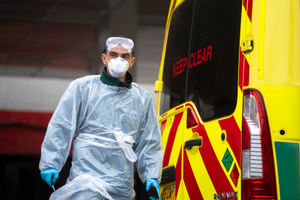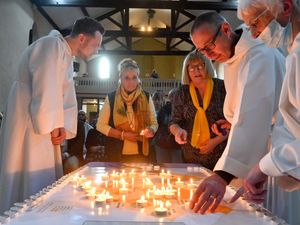Infection control experts to be sent into Black Country care homes
Infection control experts will be sent into care homes in a bid to improve Covid-19 prevention procedures and ramp up testing.

The emergency measure has been brought in to combat the coronavirus crisis in the region's care homes, which have seen nearly 600 outbreaks, 286 of which are ongoing.
Hospital admissions for Covid-19 patients have plummeted over the last fortnight, prompting a shift in focus to stemming the flow of infections in the care sector.
Deborah Cadman, chief executive of the West Midlands Combined Authority and part of the region's strategic coordination group, said teams would be dispatched into care homes as part of a new training offer developed by clinical commissioning groups.
More Covid-19 coverage:
She added: "It will also look at mutual aid, so where there are staff that can go into different care homes with different sets of experiences to support, we are seeing a lot more of that.
"There will also be seamless advice for all care homes as well about infection control and prevention, and they are also pulling together teams that will be dispatched to take swabs."
More than one third of the region's care homes have suffered Covid-19 outbreaks and data from the Office of National Statistics has shown almost as many coronavirus patients died in care homes as in hospital in the last week of April.
The sector has been beset with problems since the pandemic struck, with many care homes struggling to get access to testing and PPE for staff and patients.
While the number of coronavirus-related deaths in care homes have spiralled, hospital admissions have drastically decreased.
Dr David Rosser. chief executive of the University Hospitals Birmingham Foundation Trust – the region's biggest hospital trust – said there were now less than 300 Covid-19 inpatients in the four hospitals he runs, down from a peak of around 1,000.
The number of seriously ill Covid-19 patients on ventilators has also fallen from a peak of 172 to 49.
And he said the trust was finally seeing a spike in the number of non-coronavirus patients attending A&E departments, with hospitals now up to three quarters of the usual daily amount.
Emergency department attendances across the region had dropped by up to 40 per cent in recent weeks, with many patients scared to turn up through fears of becoming infected.
Dr Rosser said: "It feels like we are seeing people being more willing to present when they have got non-Covid related serious illness, which clearly is a good thing."





